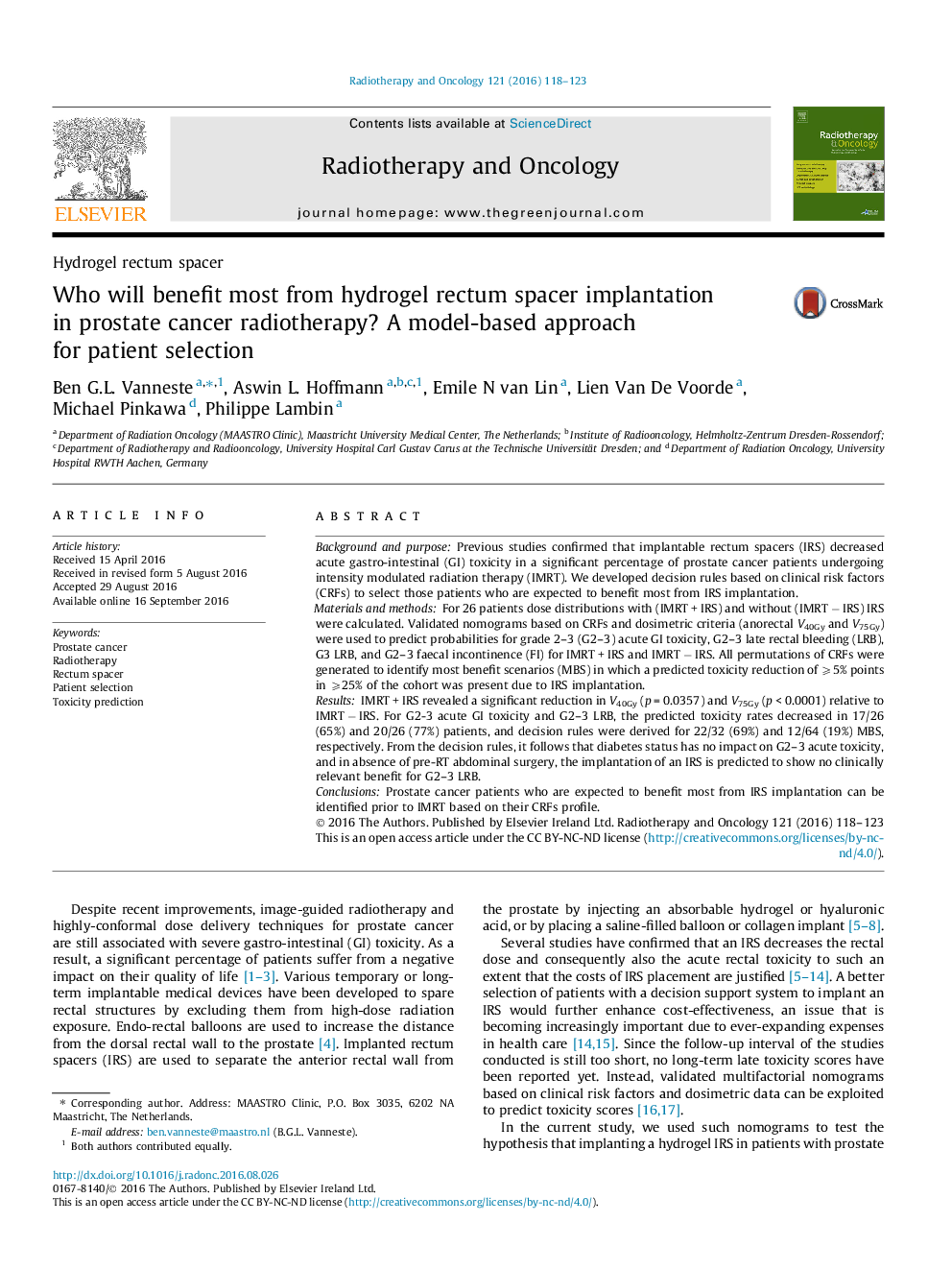| کد مقاله | کد نشریه | سال انتشار | مقاله انگلیسی | نسخه تمام متن |
|---|---|---|---|---|
| 5529805 | 1401707 | 2016 | 6 صفحه PDF | دانلود رایگان |
Background and purposePrevious studies confirmed that implantable rectum spacers (IRS) decreased acute gastro-intestinal (GI) toxicity in a significant percentage of prostate cancer patients undergoing intensity modulated radiation therapy (IMRT). We developed decision rules based on clinical risk factors (CRFs) to select those patients who are expected to benefit most from IRS implantation.Materials and methodsFor 26 patients dose distributions with (IMRT + IRS) and without (IMRT â IRS) IRS were calculated. Validated nomograms based on CRFs and dosimetric criteria (anorectal V40Gy and V75Gy) were used to predict probabilities for grade 2-3 (G2-3) acute GI toxicity, G2-3 late rectal bleeding (LRB), G3 LRB, and G2-3 faecal incontinence (FI) for IMRT + IRS and IMRT â IRS. All permutations of CRFs were generated to identify most benefit scenarios (MBS) in which a predicted toxicity reduction of ⩾5% points in ⩾25% of the cohort was present due to IRS implantation.ResultsIMRT + IRS revealed a significant reduction in V40Gy (p = 0.0357) and V75Gy (p < 0.0001) relative to IMRT â IRS. For G2-3 acute GI toxicity and G2-3 LRB, the predicted toxicity rates decreased in 17/26 (65%) and 20/26 (77%) patients, and decision rules were derived for 22/32 (69%) and 12/64 (19%) MBS, respectively. From the decision rules, it follows that diabetes status has no impact on G2-3 acute toxicity, and in absence of pre-RT abdominal surgery, the implantation of an IRS is predicted to show no clinically relevant benefit for G2-3 LRB.ConclusionsProstate cancer patients who are expected to benefit most from IRS implantation can be identified prior to IMRT based on their CRFs profile.
Journal: Radiotherapy and Oncology - Volume 121, Issue 1, October 2016, Pages 118-123
